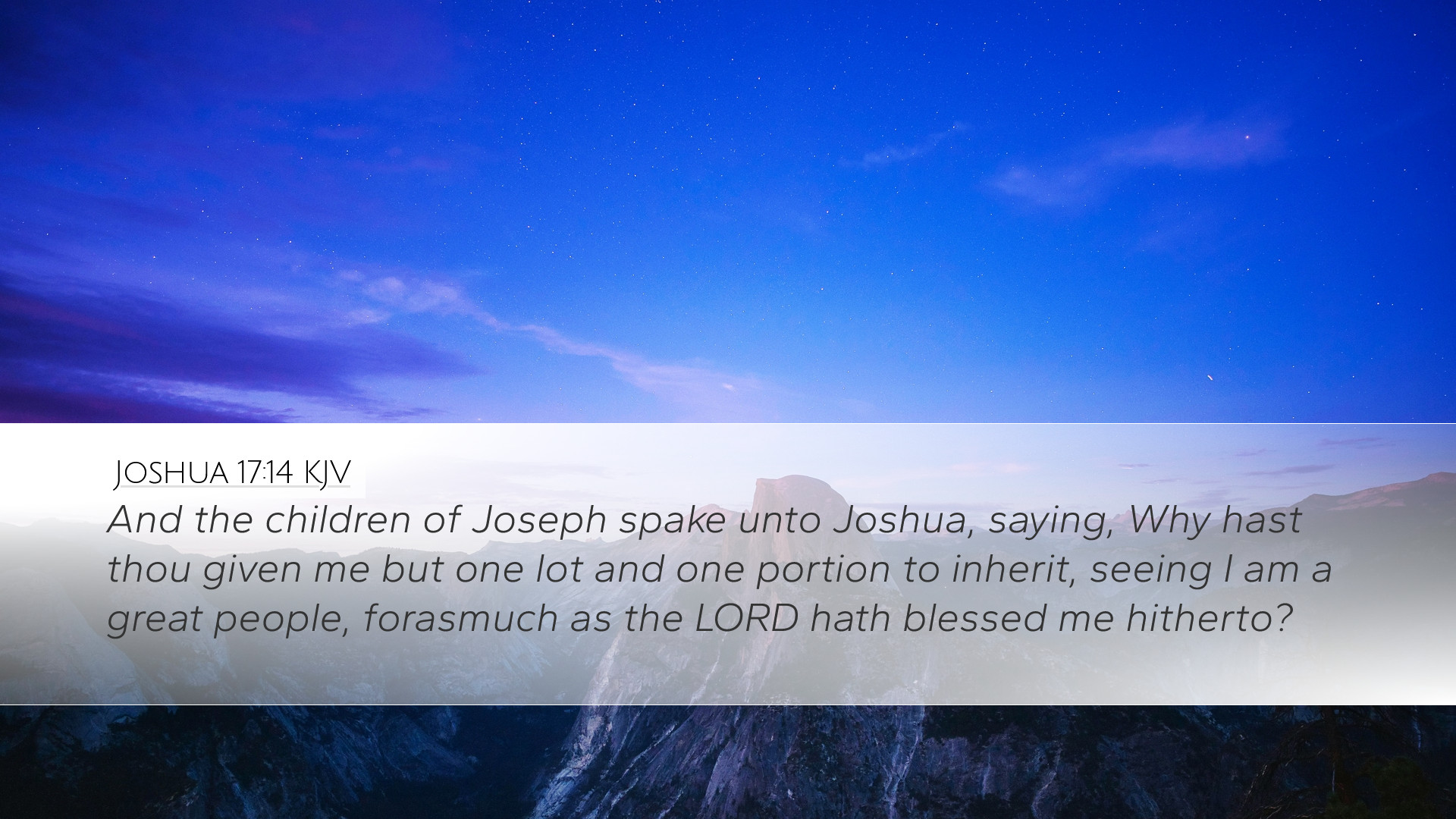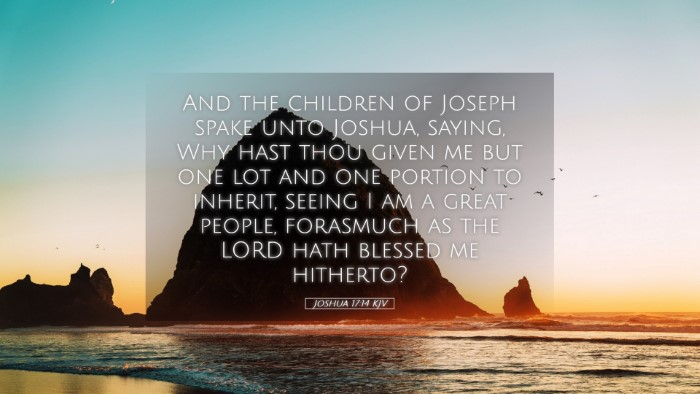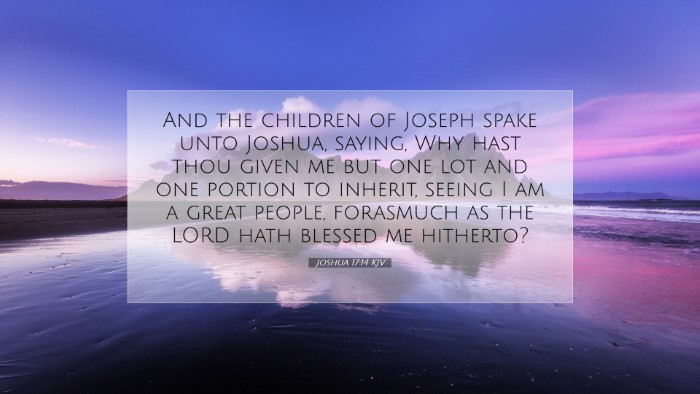Old Testament
Genesis Exodus Leviticus Numbers Deuteronomy Joshua Judges Ruth 1 Samuel 2 Samuel 1 Kings 2 Kings 1 Chronicles 2 Chronicles Ezra Nehemiah Esther Job Psalms Proverbs Ecclesiastes Song of Solomon Isaiah Jeremiah Lamentations Ezekiel Daniel Hosea Joel Amos Obadiah Jonah Micah Nahum Habakkuk Zephaniah Haggai Zechariah MalachiJoshua 17:14
Joshua 17:14 KJV
And the children of Joseph spake unto Joshua, saying, Why hast thou given me but one lot and one portion to inherit, seeing I am a great people, forasmuch as the LORD hath blessed me hitherto?
Joshua 17:14 Bible Commentary
Commentary on Joshua 17:14
Verse Text: "And the children of Joseph spake unto Joshua, saying, Why hast thou given me but one lot and one portion to inherit, seeing I am a great people, forasmuch as the LORD hath blessed me hitherto?"
Introduction
The book of Joshua marks a crucial juncture in Israel's history as they transition from wandering in the wilderness to possessing the Promised Land. Chapter 17 reveals an important episode concerning the descendants of Joseph, specifically the tribes of Ephraim and Manasseh. In verse 14, we see a poignant question posed by the representatives of these tribes, reflecting their sense of entitlement and concern over their inheritance.
Contextual Analysis
The inquiry of the descendants of Joseph in this verse can be understood against the backdrop of their demographic and spiritual aspirations. As they navigate their new reality in Canaan, they grapple with leadership, identity, and their role within the larger Israelite community.
Historical Background
- Ephraim and Manasseh: These two tribes, descendants of Joseph, were among the largest within Israel, and their expectations regarding their inheritance were understandably high.
- Allocation of Land: The land allocation was divinely commanded, yet it was managed through Joshua and the leaders. The act of "drawing lots" had consequences that were perceived as retributive justice from God.
Theological Insights
This verse prompts theological reflections on divine justice, human expectation, and the nature of blessings.
Human Expectation vs. Divine Allocation
The representatives of Joseph raise a valid point concerning their numerical strength. It illuminates the broader tension between what humans perceive as fair distribution and divine insight into what is sufficient for each tribe’s fulfillment of their god-given mission.
- Matthew Henry notes that the tribes’ claims are not merely selfish; rather, they stem from a desire to fulfill God's commands and their need for a rightful place in His kingdom.
The Nature of Blessings
The Lord’s blessings, while abundant, are often manifested in unexpected ways. The children of Joseph's complaint invites reflection on how blessings are sometimes contingent on the responsibilities attached to them. God's blessings may not always correlate directly to the amount of land or resources. This dynamic necessitates a trust in God’s wisdom.
- Albert Barnes emphasizes that God's provision aligns with His sovereign plans and purposes. Each allocation served to advance God's kingdom work among the Israelites.
Pastoral Applications
This verse and its associated commentary offer rich insights for pastoral care and teaching within the church today.
Addressing Discontent in the Congregation
In periods where congregations feel under-equipped or overlooked, leaders can draw parallels between this narrative and contemporary struggles with entitlement and dissatisfaction.
- Encouragement through God's Provision: Pastors can encourage their congregants to trust in God's provision, reminding them that divine wisdom often exceeds human understanding.
- Importance of Community: Encourage unity among members to seek collective blessing beyond individual gain.
Faithfulness in Stewardship
The response to God’s blessings should be met with responsible stewardship, emphasizing that every member has a role in the work of God’s kingdom.
- Adam Clarke suggests that wise usage of resources correlates with growth in spiritual fruitfulness, enhancing collective expectation of blessings from God.
Conclusion
Joshua 17:14 serves as a critical reminder of the complexity of human expectation in the light of divine providence. The children of Joseph’s grievance reflects a broader human struggle to reconcile personal desires with God’s will. Through this commentary, we are urged to understand our blessings, remain faithful in stewardship, and adjust our expectations according to God's greater plan.


